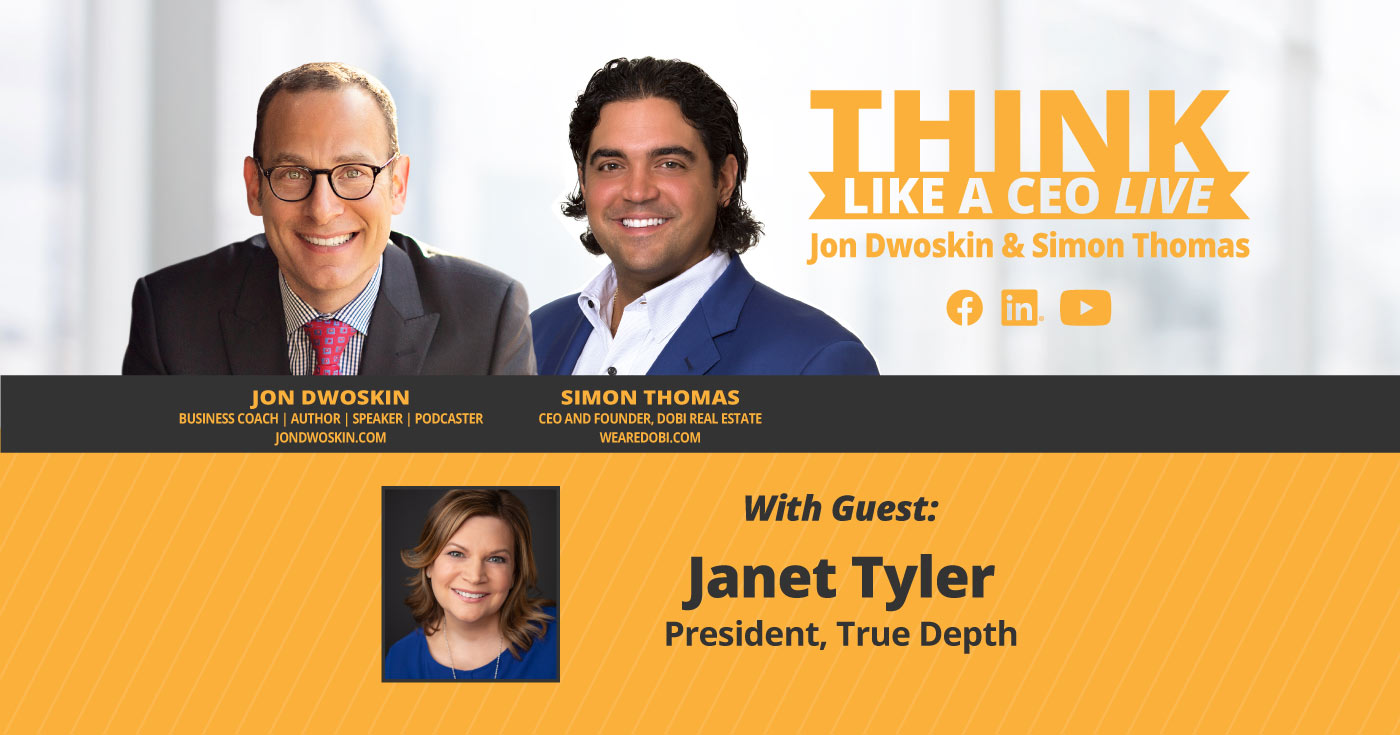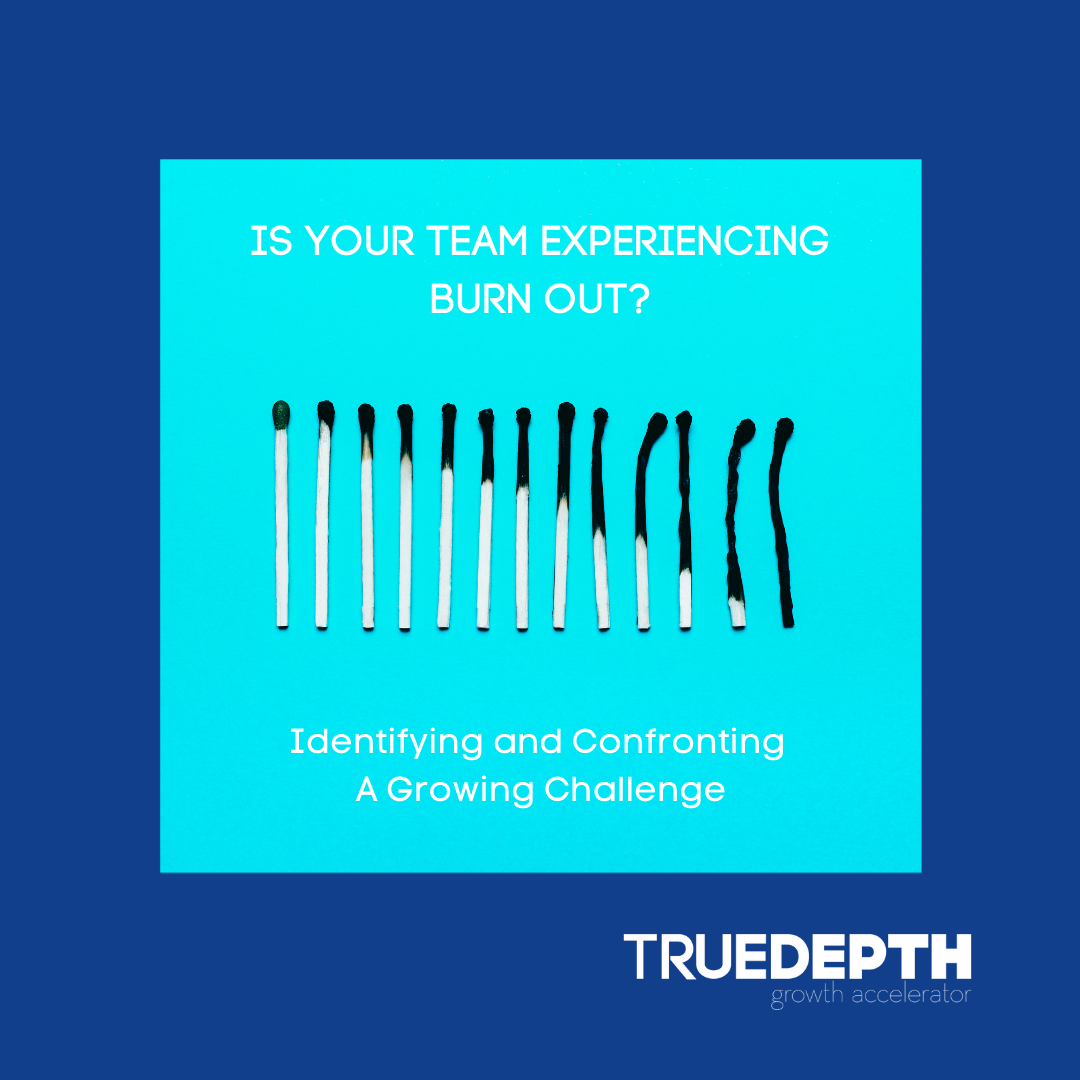Exhaustion. Sleeplessness. Depression. Anxiety. The emergence of unhealthy habits, behaviors, and addictions, combined with receding…
Think Like a CEO: Best Practices For Personal and Business Growth
Whether you’re in sales, marketing, customer support, or a business leader, you have the power to influence others and how they feel and contribute to the organization.
This subject was at the heart of my recent conversation with Jon Dwoskin and Simon Thomas at THINK Like a CEO LIVE.

We chatted on topics ranging from the difference between mentorship and coaching (and why both are important) and the power of storytelling to strategies for accelerating your business growth.
Some of the main takeaways from the conversation are below. Watch the full interview here.
Storytelling plays a major role in persuasion.
Many executives think their titles, expertise, or swag helps make them persuasive. In reality, being a credible person is only a small fraction of what it takes to convince anyone to do anything.
Even if you include some data into your presentations, that’s still only a quarter of the argument.
Instead, communicating what you’re genuinely passionate about makes up the bulk of the persuasion and storytelling. It takes courage and vulnerability to draw out these real stories, but the results are transcendent if you’re willing to go there.
Success is different for everyone.
If you’re looking for the most subjective word in business, ‘success’ wins hands down.
Success for you might be working fewer hours and spending more time with your family. Or it could be meeting a financial metric or solving an innovation problem you’re trying to unearth in your company.
Measuring it is variable and depends on your individual goals and preferences.
Therefore, the first step in defining success is not comparing yourself or your business to others’ success. Identify what you want to accomplish, celebrate small wins along the way, and use these results as benchmarks for continued growth.
Finding a business coach is all about the right fit.
Coaching requires a specific skill set. Unless you’re working with a seasoned industry expert, it’s essential to hire a business coach who is certified and credentialed through the International Coach Federation.
Someone who looks great on paper, meets all of the criteria, and qualifies to be an executive coach, may not be the best match for you. This is where the ‘best-fit conversation’ comes into play.
Any good business coach will schedule an initial conversation, even if it’s a quick 30 minutes, to ensure there’s an energy match. And if you aren’t quite meshing, they’ll have recommendations on other coaches you could talk to instead.
Much like defining success, finding a business coach who will empower you and give you focus is exceptionally personal.
Use these initial conversations to get to know each other, understand some of the coach’s philosophies, and learn how they work — you’ll know right away if it’s comfortable and the best fit.
It takes hard work to become a great leader.
There comes a time in everyone’s career path where you hit the ceiling, and things start to plateau.
A certain amount of luck, hard work, and grit can get you past the starting line, but if you’re going to finish the proverbial race, you have to keep your mental game strong and continue to learn and evolve. Otherwise, you’ll max out and never break through that ceiling.
Working with a coach can help you bridge the gap, but you must be willing to do the work. Follow their lead, commit, and put in the time.
You can’t be the CEO of anything until you have alignment and focus. True Depth is a growth accelerator consultancy located in Metro-Detroit. Our workshops are tailor-made for clients in the tech industry to pull back the layers of your leadership and unlock your full potential.
From high-impact speaking to leveling up your leadership skills, find your specialized support here.



